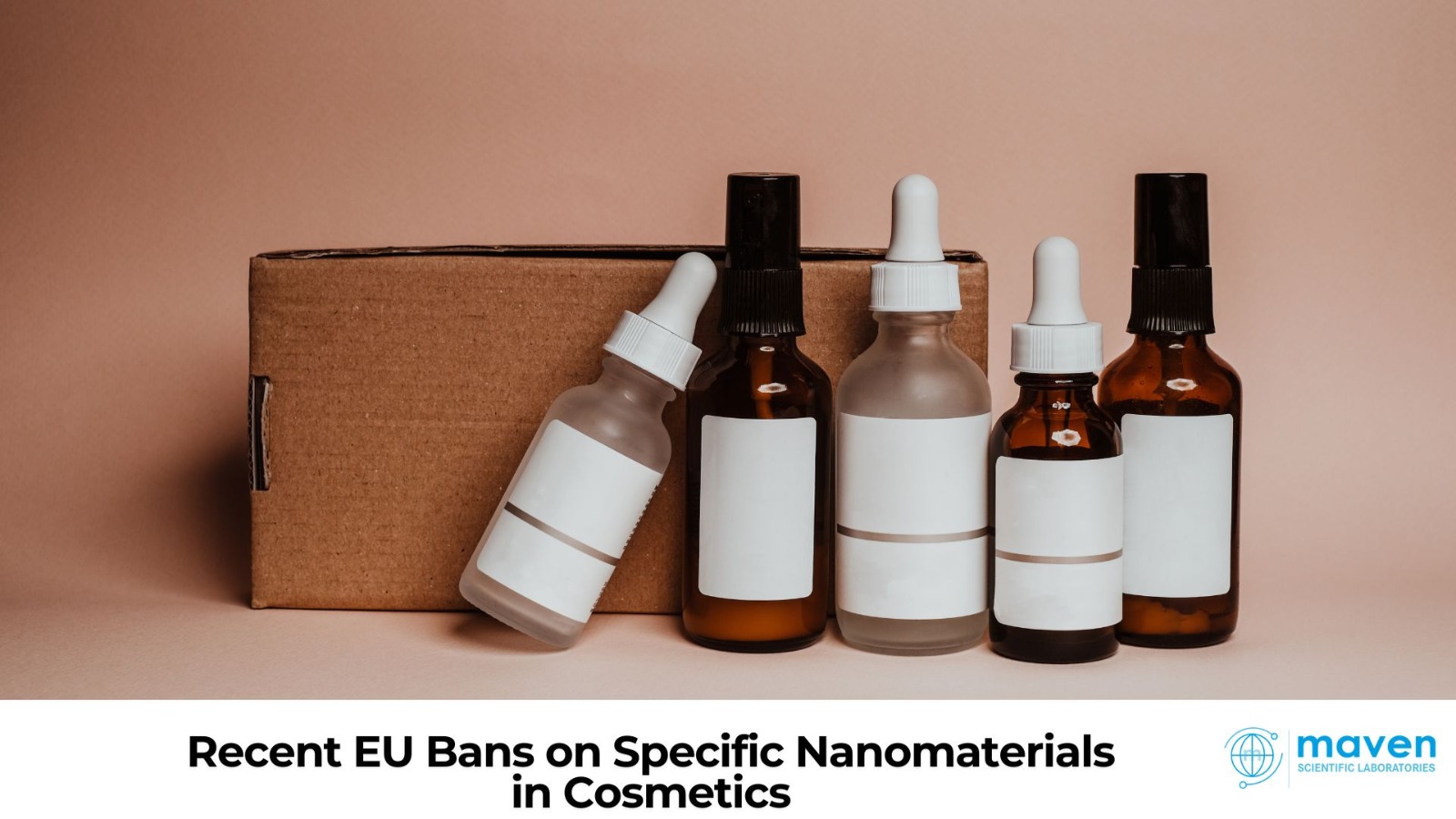
Recent EU Bans On Specific Nanomaterials In Cosmetics
The European Union has enacted significant new restrictions and outright bans on the use of certain nanomaterials in cosmetic products, reflecting updated scientific assessments and a commitment to consumer safety. The key regulatory change is Commission Regulation (EU) 2024/858, published in March 2024, which amends the EU Cosmetics Regulation (EC) No 1223/2009.
Newly Banned Nanomaterials in Cosmetics
As of 2025, the following nanomaterials are banned (added to Annex II, the list of prohibited substances) and can no longer be used in cosmetic products marketed in the EU:
- Styrene/Acrylates copolymer (nano)
- Sodium Styrene/Acrylates copolymer (nano)
- Copper (nano)
- Colloidal Copper (nano)
- Colloidal Silver (nano)
- Gold (nano)
- Colloidal Gold (nano)
- Gold Thioethylamino Hyaluronic Acid (nano)
- Acetyl heptapeptide-9 Colloidal Gold (nano)
- Platinum (nano)
- Colloidal Platinum (nano)
- Acetyl tetrapeptide-17 Colloidal Platinum (nano)
Restricted Nanomaterials
- Hydroxyapatite (nano):
Now restricted to a maximum of 10% in toothpaste and 0.465% in mouthwash. It must not be used in products that could result in inhalation exposure by the end user. Only specific particle shapes and sizes are permitted under this restriction.
Compliance Deadlines
- From February 1, 2025:
Cosmetic products containing any of these banned nanomaterials cannot be placed on the EU market. - From November 1, 2025:
Such products must not be made available (i.e., must be withdrawn from shelves and distribution).
Why These Changes?
These bans and restrictions are based on updated risk assessments by the Scientific Committee on Consumer Safety (SCCS), which identified potential health risks associated with these nanomaterials, including insufficient safety data and concerns over systemic exposure.
What Should Manufacturers Do?
- Review all product formulations for the presence of these nanomaterials.
- Reformulate or withdraw non-compliant products before the deadlines.
- Update product documentation and labelling to reflect compliance with the new regulations.
Conclusion
The EU now bans several forms of nano gold, silver, copper, platinum, and certain copolymers in cosmetics, with new restrictions on hydroxyapatite (nano). Manufacturers must act swiftly to ensure compliance and maintain market access in the European Union.







